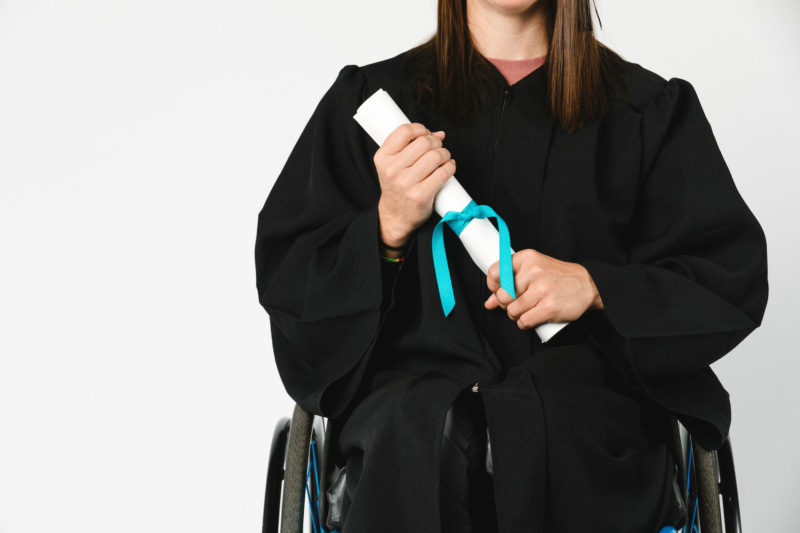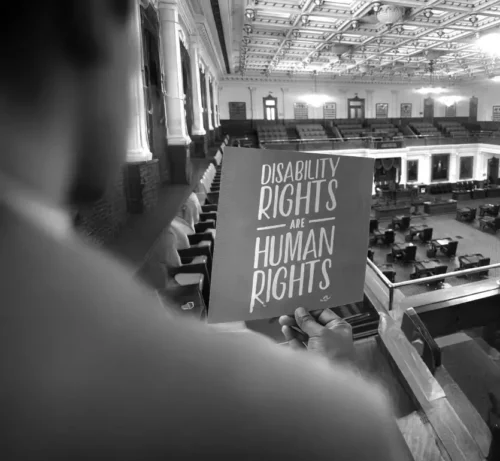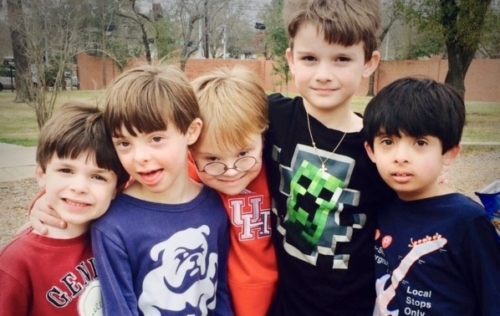Expanding Post-Secondary Education: How To Choose?!

As a high school special education teacher, post-secondary transition is always a topic of conversation and major focus while planning. Oftentimes I get the question, “Are there educational opportunities for my child after graduation?” Or, “Is college an option for us?”
Due to the efforts of countless advocates who sought to create equal opportunity for people with disabilities, the answer to these questions is now a resounding, “YES!”. These advocates partnered with passionate educators in order to launch a wave of new post-secondary educational options for students diagnosed with intellectual or developmental disability (IDD). For clarification, post-secondary education is any education following graduation from high school. Post-secondary education is not a “one shoe fits all process”. It is important parents know post-secondary education includes traditional 4-year colleges or universities, 2 year community colleges, and technical or trade schools. Within each option, there are increasing numbers of inclusive programs being offered.
To shed some light on the growth in number of these programs, there were 265 programs across the country in 2019 [1]. Currently, ThinkCollege (a national organization dedicated to improvement of inclusive higher education options for people with IDD) lists over 313 colleges and universities that offer post-secondary educational programs for young people with IDD [2]. As the pendulum of options continues to swing towards the, “How on earth do I pick?” side of things, it’ll be critical that soon-to-be graduates are aware of how these programs got started, their benefits, and how to distinguish whether or not the program is right for them.
The Legal Boost
The seemingly abundant options can be attributed to two main legal reauthorizations. One of the first steps leading to the improvement of inclusive post-secondary education programs was the reauthorization of the Higher Education Opportunity Act (HEOA) in 2008. This reauthorization defined the steps schools can take in order to receive designation as “Comprehensive Transition Programs”. In order for programs to receive this designation, schools must provide access to college classes in order to increase social and academic inclusion on their campus. Additionally, HEOA (2008) provided financial aid opportunities for students enrolled in programs with that designation [3]. Furthermore, the Workforce Innovation and Opportunity Act (the 2014 reauthorization of the Workforce Investment Act of 1988) continued to encourage people with IDD to pursue vocational training and support through designated post-secondary education programs.
Why Choose Inclusive Post-Secondary Education
Whether or not this information is new to families looking into inclusive postsecondary education, it is worthwhile to ask the question, “Why is this the right move?”. I must admit that I do not have a child who has completed one of these programs nor have I been teaching long enough to see one of my former students go through one. However, I do see the faces of my students light up when they begin to realize that college is an option for them. Even more exciting is the literal jump for joy when they hear it may mean living in a dorm and attending college classes.
People who complete an inclusive post-secondary education program experience improved rates of employment, independent living, and community engagement[4]. Additionally, students engage in unique social opportunities that only post-secondary education can offer. Parents often point to these social opportunities as the leading value within these inclusive post-secondary education programs[5]. In addition to the vocational training, support in independent living, and connection to local businesses, the real-life social skill training is something that my students with disabilities should have the opportunity to engage in.
While I will not make the argument that one program is better than the other or even that inclusive post-secondary education is for everyone, I will point out some considerations families need to make. It is crucial that each family identify the current strengths, areas of need, and career goals of their adult children in order to make the best decision. Once that decision is made, there are countless factors to consider in helping to choose the program that fits.
How to Choose Inclusive Post-Secondary Education
Families should begin the program selection process very similarly to any recent high school graduate. Beginning with questions such as:
- “In-state or not?”
- “What can we afford?”
- “What extracurricular activities do they offer?”
- Or my favorite, “How’s the cafeteria food?”
While I am half joking about the last one, there are additional questions to consider while creating a list of inclusive post-secondary educational programs. ThinkCollege put together a wonderful resource for families to use when embarking on their college search[6]. Above all, schools can and should be providing opportunities for students in their inclusive programs to access other aspects of post-secondary educational life. Whether this be inclusive class options, accessible housing, and/or availability to engage in extracurriculars, in order for a campus to truly be inclusive, they must not only support students with IDD in the classroom but also present them opportunities to meaningfully contribute to the wider collegiate environment.
Having multiple post-secondary education options within the state and across the country presents an amazing opportunity for young people with IDD and their families. My hope is that understanding the history, the benefits, and essential questions to consider will allow families to support their adult children in the decision making process. Having the chance to choose a school and a multitude of schools can be overwhelming, but should act as a major step on the road to a more inclusive experience for my students and their families.
Resources:
[1] Inclusive postsecondary opportunities for students with intellectual disabilities. Inclusive Postsecondary Opportunities for Students wInith Intellectual Disabilities – PACER’s National Parent Center on Transition and Employment. (n.d.). Retrieved May 1, 2022,
[2] College Search. ThinkCollege. Retrieved from https://thinkcollege.net/college-search
[3] Scheef, A., Hollingshead, A., & Barrio, B. (2020). Supporting Students With Intellectual and Developmental Disability in Postsecondary Education. Journal of College Student Development, 61(4),528-531.
[4] Miller, K. D., DiSandro, R., Harrington, L., & Johnson, J. S. (2016). Inclusive higher education is reaping benefits for individuals with intellectual disabilities: One program’s story. Think College Insight Brief, Issue No. 29. Boston, MA: University of Massachusetts Boston, Institute for Community Inclusion.
[5] Miller, K. D., Schleien, S. J., White, A. L., & Harrington, L. (2018). ” Letting Go”: Parent Perspectives on the Outcomes of an Inclusive Postsecondary Education Experience for Students with Developmental Disabilities. Journal of Postsecondary Education and Disability, 31(3), 267-285.
[6] Weir, C. (2019). How to ThinkCollege “Conducting a College Search:Questions to Ask College Programs.” https://thinkcollege.net/sites/default/files/files/resources/
Conducting_College_Search_HTTC1v2.pdf




